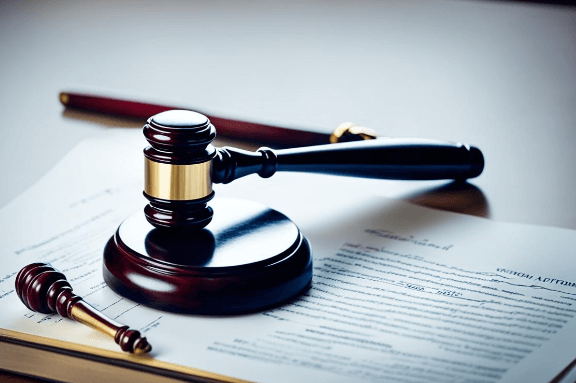Who Can Override a Power of Attorney? Understanding Your Rights

A power of attorney (POA) is a significant legal document that enables one individual to make decisions on behalf of another, covering areas like financial and medical matters. While this authority is invaluable for providing support, it also brings up important concerns regarding oversight and control. Many individuals wonder about the limits of this authority and who holds the power to intervene. Understanding the intricacies of a power of attorney is essential for safeguarding your rights.
At Johnson Legal, we are committed to helping you navigate the complexities of power of attorney arrangements. This blog aims to clarify who has the authority to override a power of attorney and under what circumstances.
What is a Power of Attorney?
A power of attorney is a legal document that grants someone (the agent or attorney-in-fact) the authority to make decisions for another person (the principal). This may involve overseeing financial responsibilities, making medical choices, or managing property issues. A POA can be broad or limited, depending on the specific powers granted by the principal.
While the document is designed to empower the agent, it’s essential to recognize that the principal retains certain rights. This is where questions about who can override a power of attorney come into play.
See also: Why You Need a Skilled Car Accident Lawyer After an Accident
Who Can Override a Power of Attorney?
Understanding who can override a power of attorney involves looking at several factors, including the principal’s capacity, the type of POA, and the circumstances surrounding its creation. Here are key parties and scenarios to consider:
1. The Principal
The principal has the ultimate authority over their power of attorney. If the principal is mentally competent, they can revoke or modify the power of attorney at any time. This means they can directly override their own POA by:
- Revoking the Power of Attorney: The principal can formally revoke the POA by creating a written document stating their intent. This document should be signed and dated, and it is best to inform the agent and any relevant third parties (like banks or healthcare providers) about the revocation.
- Creating a New Power of Attorney: If the principal wishes to change the agent or the powers granted, they can draft a new power of attorney that overrides the previous one.
2. Legal Guardians or Conservators
In cases where the principal becomes incapacitated and cannot make decisions for themselves, a court may appoint a legal guardian or conservator. This appointed individual has the authority to make decisions on behalf of the principal, effectively overriding the existing power of attorney. The guardian’s authority typically depends on the court’s ruling and can vary by jurisdiction.
3. Co-Agents
If the power of attorney designates multiple agents (co-agents), the POA document may specify how decisions are made. In some cases, the agents may need to act jointly, meaning they can override each other’s decisions if they disagree. It is essential to refer to the POA document for specific instructions on how co-agents should operate.
4. The Courts
A court can intervene in matters involving a power of attorney if there are disputes or allegations of abuse. If someone believes that the agent is acting against the principal’s best interests—such as misusing funds or making harmful decisions—they can petition the court to review the situation. The court may then determine whether to revoke the power of attorney and appoint a new agent or guardian.
5. Third Parties
Certain third parties, such as banks or healthcare providers, may also have policies that require verification before accepting a power of attorney. While they cannot override the POA itself, they can refuse to honor it until they are satisfied with its validity. This often involves checking for specific requirements, such as notarization or witness signatures, that may be needed in your state.
Why is It Important to Understand This?
Understanding the authority surrounding a power of attorney is essential for several reasons:
- Protection Against Abuse: Understanding the authority surrounding a POA can help prevent potential misuse. If you’re concerned about how your POA might be used, knowing your rights enables you to take action if necessary.
- Ensuring Your Wishes are Honored: If you create a power of attorney, it’s vital to ensure that your intentions are clear and can be honored. This understanding helps you choose the right agent and structure the document to fit your needs.
- Navigating Complex Situations: If a dispute arises or you suspect that the agent is acting improperly, knowing your rights empowers you to take the necessary legal steps to address the issue effectively.
Steps to Take if You Need to Override a Power of Attorney
If you find yourself in a position where you need to override a power of attorney, consider the following steps:
- Consult an Attorney: Legal advice can clarify your options and help you navigate the process of revoking or contesting a power of attorney.
- Document Your Intentions: If you are the principal and wish to revoke the POA, create a formal document stating your intent. Ensure it is signed and dated.
- Notify Relevant Parties: Once you have revoked or altered the power of attorney, inform your agent and any third parties who may have relied on the original document.
- Consider Alternatives: If the situation is complex, such as a dispute with a co-agent or allegations of abuse, you may need to seek court intervention to ensure your rights and wishes are upheld.
Conclusion
Navigating the world of power of attorney can be intricate, but understanding who can override a power of attorney is essential for protecting your rights and ensuring your wishes are respected. Whether you are the principal, an agent, or a concerned family member, knowing your options can help you make informed decisions.At Johnson Legal PLLC, we are here to assist you in understanding your rights regarding power of attorney arrangements. If you have questions or need guidance on this important legal matter, don’t hesitate to reach out. We’re dedicated to helping you navigate these complexities with confidence and clarity.






